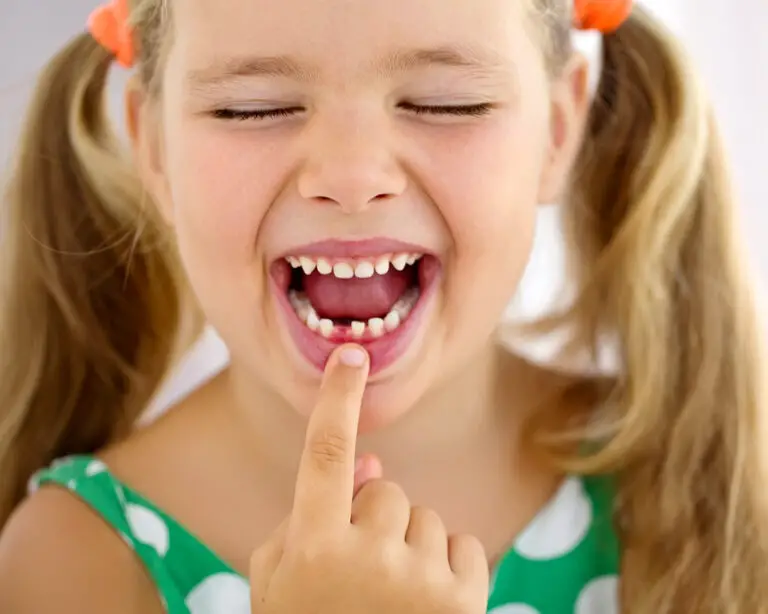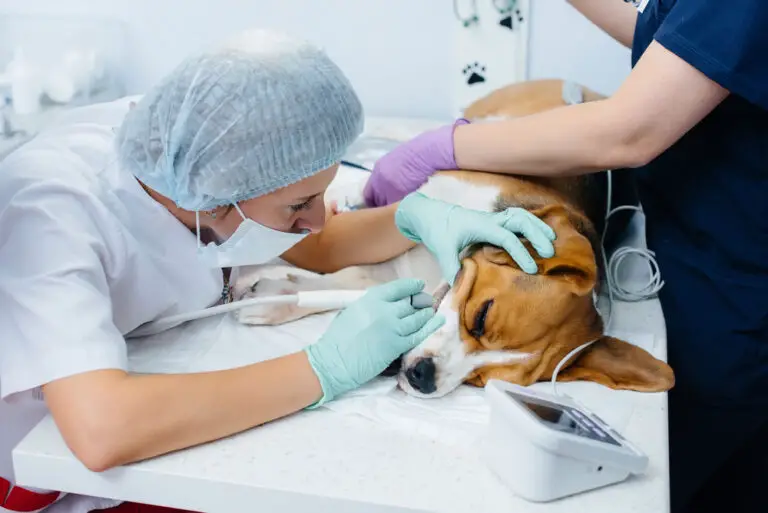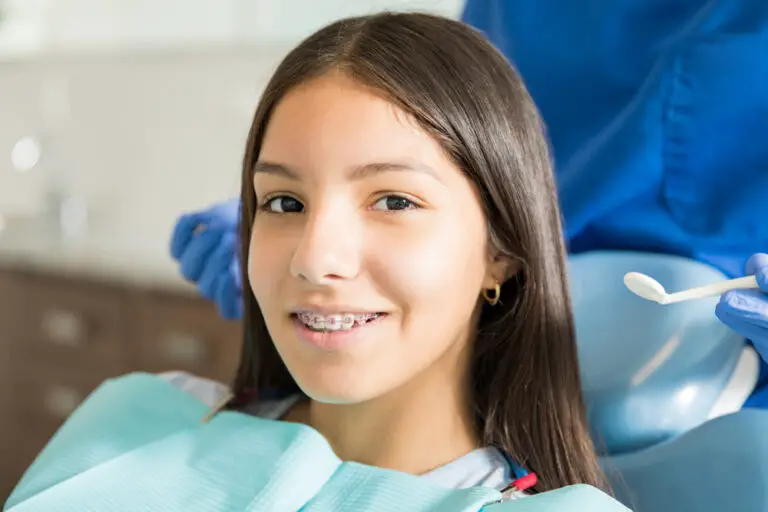It’s a common morning routine for millions of people – wake up, boil the kettle, and enjoy a hot cup of tea or coffee to start the day. The comforting, caffeine-filled beverage helps kickstart the morning and energize you for the day ahead. However, most dentists strongly advise against brushing your teeth immediately after drinking tea, coffee, or any acidic beverages.
This article will take an in-depth look at how tea and coffee can damage your tooth enamel, especially if you brush too soon after drinking them. We’ll explore the pH levels of various popular drinks, how acids soften enamel, and why waiting at least 30 minutes before brushing is ideal. You’ll also find tips on protecting your teeth while still enjoying your morning brew.
Tea and Coffee Both Have Acidic pH Levels
The tannins in tea and acids in coffee give them both lower pH levels, making them acidic beverages. pH is measured on a scale from 0-14, with 0 being highly acidic and 14 being highly alkaline. Water has a neutral pH around 7.
When foods or drinks have a pH below 5.5, they are considered acidic. Prolonged exposure to acids can erode the enamel layer of your teeth. Tea registers between pH 4.5-5.5, while coffee is between pH 4.5-5.0. For comparison, soda has an extremely low pH of 2.5-3.5.
pH Levels of Common Beverages
| Beverage | pH Level |
|---|---|
| Coffee | 4.5-5.0 |
| Black tea | 4.5-5.5 |
| Green tea | 6.5-7.5 |
| Soda | 2.5-3.5 |
| Energy drinks | 3.0-3.5 |
| Beer | 4.0-4.5 |
| Milk | 6.5-6.7 |
| Water | 7.0 |
| Red wine | 3.8-4.0 |
| Orange juice | 3.3-4.2 |
As you can see, coffee and black tea are much more acidic than water, milk, or green tea. Acidic beverages below pH 5.5 can harm your teeth, especially if consumed frequently over many years.
Why Acids Soften Tooth Enamel
To understand why it’s bad to brush after drinking acidic beverages, you first need to understand how acid affects enamel.
Enamel is the hard, outermost layer of the tooth that protects the sensitive dentin underneath. It’s made of hydroxyapatite crystals that form a strong, mineralized surface. Acids in food and drinks can dissolve these crystals, temporarily softening the enamel.
Saliva gradually neutralizes acid and helps restrengthen softened enamel in a process called remineralization. But if acid is present for prolonged periods, such as while sipping a cup of coffee over an hour or more, the enamel remains vulnerable.
Brushing too soon after acids weaken the enamel can actually scrub away some of the outer enamel layer. Over time, this erosion of enamel from acid and abrasion from brushing can lead to cavities, hypersensitivity, and permanent damage.
Why You Should Wait 30-60 Minutes Before Brushing?
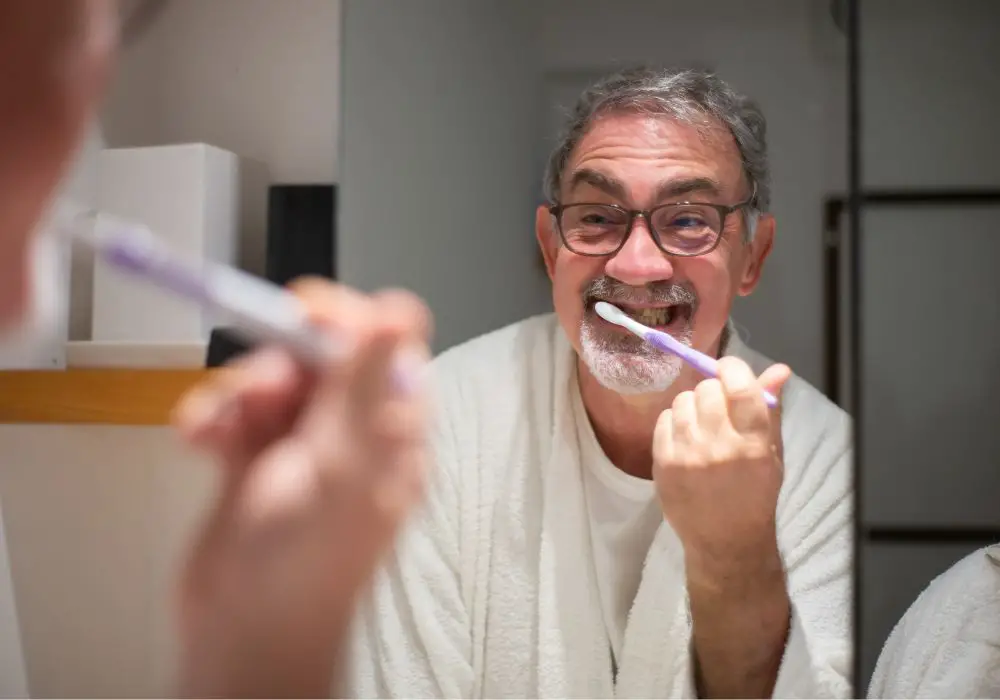
Now that you understand why acidic foods and beverages soften enamel, it’s clear why you shouldn’t brush immediately afterwards.
Brushing too soon after eating or drinking anything acidic will abrasively remove softened enamel before it has a chance to reharden.
Dentists generally recommend waiting at least 30 minutes after consuming acidic foods or drinks to brush teeth. However, waiting 60 minutes is ideal, allowing more time for your saliva to fully neutralize any lingering acidity.
Some tips for preventing enamel erosion after eating or drinking:
- Rinse mouth with plain water to help wash away acid
- Chew xylitol gum to stimulate saliva and remineralization
- Wait a full hour before brushing if possible
- When brushing, use gentle circular motions and a soft-bristled brush
Effects of Acidic Drinks Over Time
While an occasional cup of coffee or glass of wine won’t destroy your enamel overnight, habitual consumption of acidic drinks can cause cumulative damage over many years:
- Thinning and eroding of the outermost enamel layer
- Increased transparency of underlying dentin showing through as discoloration
- Exposed dentin tubules leading to sensitivity
- Cracking and pitting in enamel surface
- Increased staining and discoloration
- Higher susceptibility to cavities and decay
Sipping acidic drinks slowly over long periods while the enamel is vulnerable is especially harmful. Using a straw to minimize contact with teeth can help reduce the impact.
Other Reasons to Avoid Brushing Right After Eating/Drinking
In addition to brushing away softened enamel, there are a few other reasons to hold off on brushing immediately after consuming food and drinks:
- Avoid Spreading Stains – Foods and drinks with dark pigments – like coffee, tea, wine, berries, sauce, and chocolate – can discolor teeth. Brushing too soon can spread stains over more of the tooth surface before the pigments are cleared away by saliva.
- Prevent Damage to Gums – Gums can become irritated and inflamed if brushed too vigorously, especially if tissue is dry and dehydrated. Acidic drinks promote a dry mouth environment. Waiting allows time for gums to rehydrate and heal before brushing.
- Let Saliva Work First – Saliva contains minerals like calcium and phosphate that help strengthen and remineralize enamel after acid exposure. Give saliva time to thoroughly coat the teeth before attempting to brush it away.
Tips for Protecting Your Teeth
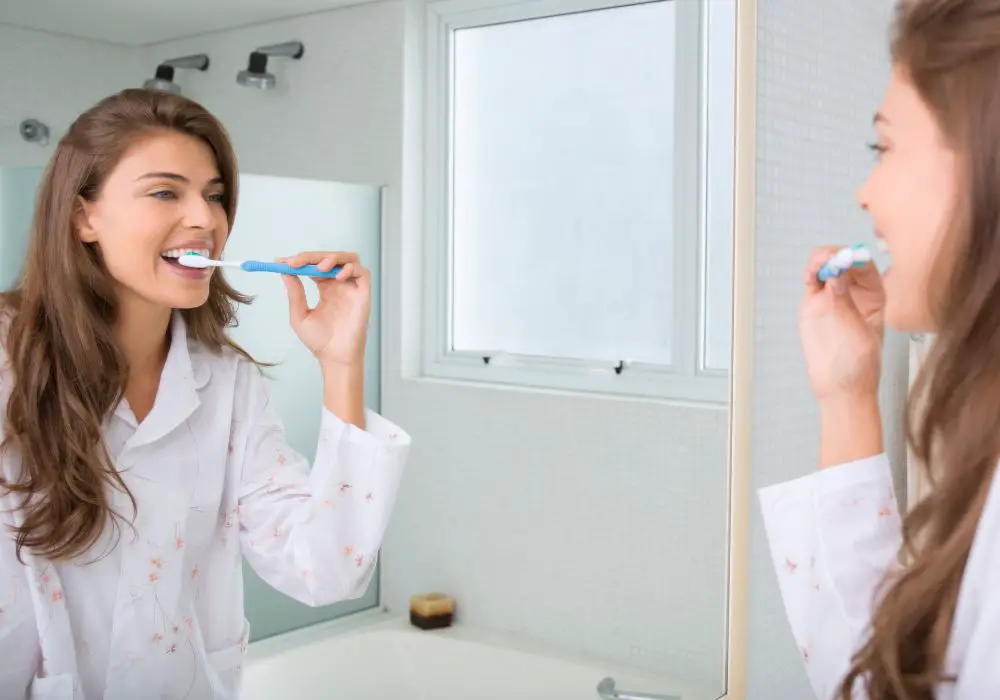
If you regularly consume tooth-staining, acidic drinks like coffee, tea, juice or wine, here are some tips to minimize the damage:
- Drink with a straw to reduce contact with teeth
- Rinse mouth with plain water after drinking
- Chew xylitol gum to stimulate saliva flow
- Wait at least 30-60 minutes before brushing
- Use soft-bristled brush and gentle circular motion
- Limit acidic drinks to mealtimes only
- Get regular dental cleanings every 6 months
While acidic beverages can harm enamel over time, being mindful of good habits can help counteract the effects. Savor your morning tea or coffee ritual, but be sure to wait before brushing for healthier, whiter teeth.
Frequently Asked Questions
How long should you wait to brush after drinking coffee?
It’s best to wait at least 30 minutes after finishing a cup of coffee or tea before brushing your teeth. An hour is even better to allow saliva time to fully neutralize acidity and re-harden any softened enamel.
Is black tea as damaging to tooth enamel as coffee?
Yes, black tea contains tannins that make it similarly acidic as coffee, with a pH around 4.5-5.5. Both beverages can erode and stain enamel if consumed too frequently. Waiting 30-60 minutes before brushing is advised.
Is it okay to rinse with water and then brush right after drinking coffee?
Swishing water briefly helps rinse some acid away, but does not neutralize it completely. You should still wait about 30 minutes for saliva to fully neutralize coffee’s acidity before brushing.
Can drinking coffee with a straw prevent damage to tooth enamel?
Using a straw reduces contact between coffee and your teeth. However, the acidic liquid still interacts with enamel and gums as you drink. It’s still best to wait 30-60 minutes before brushing to allow saliva to remineralize enamel.
Is green tea acidic like black tea or coffee?
Green tea has a higher pH around 6.5-7.5, so it is significantly less acidic than black tea and coffee. However, some variants contain citric acid for flavor, so you should still rinse your mouth after drinking green tea.
Does whitening toothpaste help remove stains better right after drinking coffee?
No – abrasive whitening toothpaste can damage softened enamel if used too soon after acidic drinks. Wait at least 30 minutes for the enamel to reharden before gentle brushing with whitening toothpaste.
Summary
Drinking coffee, tea, and other acidic beverages like soda and juice can damage tooth enamel over time, especially if you brush immediately after. Acids soften enamel, and brushing too soon can scrub away some of that vulnerable outer layer.
To prevent erosion and sensitivity, wait at least 30 minutes after eating or drinking before brushing your teeth. Allow time for saliva to neutralize acids and remineralize any weakened areas of enamel. With some minor adjustments to your oral hygiene routine, you can still enjoy staining, acidic morning coffee and tea without sacrificing your dental health.

